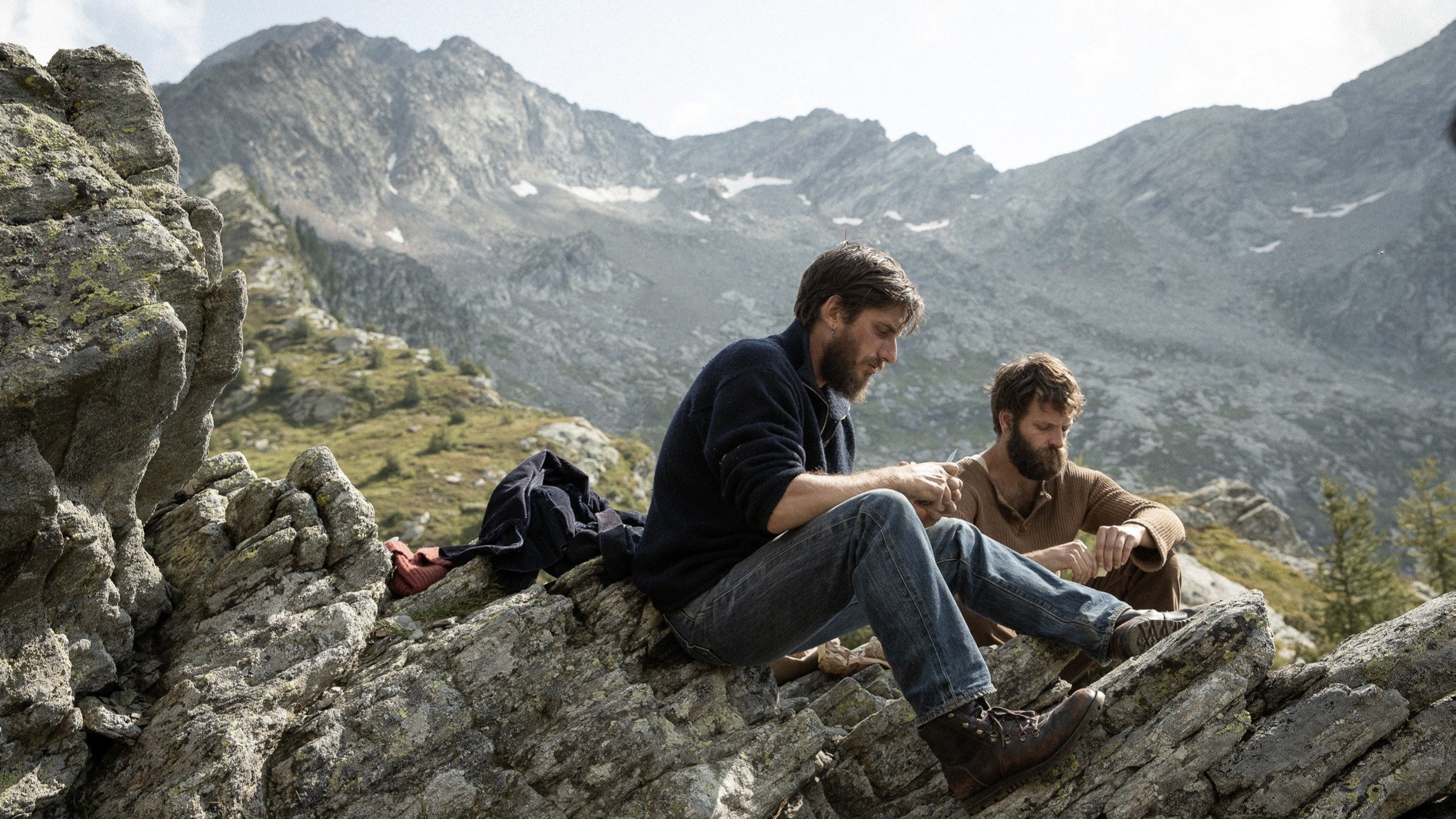THE EIGHT MOUNTAINS
Directing: B+
Acting: B
Writing: B+
Cinematography: B+
Editing: B
I’m not sure anyone else would dare call The Eight Mountains a love story, but I will. Even though there is very little romance in it, and certainly not between the two main characters—at least not of the sort that “romantic” movies are typically about.
This is really a platonic love story, between two boys, and then between two men, who are simply close friends. This is precisely the kind of story I have long pined for more of: about close friendship, about an intimate relationship that doesn’t have to be romantic or sexual. These types of relationships are plentiful out here in the real world, and we so seldom get to see it depicted onscreen.
I’d love it even more to see an American film about such a relationship, but I’ll take what I can get. The Eight Mountains is Italian, set mostly in the Italian alps, some of it in Turin, Italy’s fourth-largest city with a metropolitan population of about 2 million—more than enough to provide a stark, urban contrast to the film’s primary setting of Grana, a rural community of fewer than 1000 people all of about 31 miles east of Turin.
This is the story of friendship formed in boyhood, at around the age of twelve, between Pietro, whose parents are renting a house in Grana for the summer; and Bruno, who is the last child left in this mountain community.
A good chunk of the film, at least the first quarter, follows these two and their relatively carefree exploits, over the first couple of summers they know each other. The boys at this age are played by Lupo Barbiero and Cristiano Sassella, who are both great. After Bruno is forced to start working in town during the summers, the brief portion of the film about their adolescence focuses on a bitter and sullen teenaged Pietro (Andrea Palma), who only sees Bruno once during this period. They then don’t see each other for fifteen years, until they reconnect and resume a close friendship as adults—now played, through the rest of the movie, by Luca Marinelli as Pietro and Alessandro Borghi as Bruno.
Bruno resents the time he was forced to work in town; he loves his mountain life too much, and establishes an ultimately unsustainable milk and cheese farm in Grana. He convinces Pietro to help him rebuild a stone house up there in the mountains, as promised to Pietro’s late father during a long period in which Pietro and his father weren’t speaking.
There follows many years in which Pietro continues going away, but coming back to visit during the summer, even through some of the time he spends abroad in Nepal. In turn, they find spouses; Bruno has a child. The Eight Mountains has a pretty long run time—two hours and 27 minutes—but it has a warm and inviting tone to it, this kind of slow burn narrative of two people who deeply care about each other, what their lives have been like, where their lives are going, and what challenges they face.
It may be a cliché, but there are those who speak of that special friend with whom they can spend a lot of time away from each other, sometimes many years, but once they are together again it’s as though they were never apart. You could say that that kind of friendship is what The Eight Mountains is about. The title is a metaphor that is explained in the film, referring to the ways two very different types of people move through the world. Pietro and Bruno clearly represent the two different types, in a way where their cyclical journeys regularly intersect.
There are no thrills or twists in The Eight Mountains, which is more of a quiet drama, which caresses you like a pleasant summer breeze. Granted, some of it is also set in harsh mountain winters, but the warmth between these two men stays consistent. There is but one brief period of conflict and fairly quick resolution between them; every story must have that, and yet that’s not really what this is about. This is about two people who, in spite of living very different lives, understand each other in a way no one else really does.
Bruno is very obstinate about his perceived place as a resident of the mountains, as though it is his destiny, no matter what the consequences to his livelihood or his family. Still, there are no great tragic moments, only some detours into melancholy. Early on, Pietro contemplates something his father told him, about how every bright period must be followed by a period of gloom. I think a lot about that idea, because it’s really the only way we appreciate the bright periods when they happen. Such is the case with the long, meandering friendship between Pietro and Bruno, two close friends who deeply love each other. Going on that journey with them is a lovely experience.
Pietro and Bruno share one of countless quiet moments together.
Overall: B+

